Workshop Series 2: Path Forward for Naming the Uncultivated (February 2021)
“Practical barriers to naming uncultivated microorganisms” (February 4/5 2021)
Objective: To tackle roadblock issues and concerns with the Uncultivated Code
Format: Pre-recorded talks and resources, moderated round table discussion, and breakout discussion groups
Watch Workshop Recording 1a February 4/5 2021
Watch Workshop Recording 1b February 4/5 2021
▼ Pre-recorded talks and background reading
Pre-recorded talks and presenters are listed below along with associated papers
How did we get here? Ramon Rossello-Mora
Associated paper:
Uncultivated microbes in need of their own taxonomy - Konstantinidis et al. The ISME Journal
Can MAGs be of same quality as isolate genomes for taxonomic descriptions? Kostas Konstantinidis
Associated paper:
Advantages outweigh concerns about using genome sequence as type material for prokaryotic taxonomy Konstantinidis et al. Environmental microbiology
Nomenclature of Candidatus taxa: establishing order in the current chaos Aharon Oren
Associated paper:
Lists of names of prokaryotic Candidatus taxa Oren et al. Systematic and Evolutionary Microbiology
The importance of a type to be cultivable, according to the ICNP Ed Moore
Associated paper:
A System to Automatically Classify and Name Any Individual Genome-Sequenced Organism Independently of Current Biological Classification and Nomenclature Marakeby et al. Plos one
Roadmap to naming uncultivated Archaea and Bacteria Alison Murray
Associated paper:
Roadmap for naming uncultivated Archaea and Bacteria Murrey et al. Nature Microbiology
The SeqCode: a code for naming prokaryotes with DNA sequences as the type Barny Whitman
Associated paper:
Dialogue on the nomenclature and classification of prokaryotes Whitman et al. Systematic and Applied Microbiology
Genome sequences as the type material for taxonomic descriptions of prokaryotes Whitman. Systematic and Applied Microbiology
Breakout Group Feedback Fanus Venter
“Path forward to implementation and adoption of the SeqCode” (February 11/12 2021)
Objective: To determine a path forward for implementation and adoption
Format: Pre-recorded talks and resources:
- Topic 1: What can we learn from other "modern" nomenclature systems?
- Topic 2: Path forward through international organizations, standards, and databases
- Panel discussion and open community forum for moving forward to name the uncultivated
Watch Workshop Recording 2a February 11/12 2021
Watch Workshop Recording 2b February 11/12 2021
▼ Pre-recorded talks and background reading
Pre-recorded talks and presenters are listed below along with associated papers
Translating between nomenclature systems
A Return to Linnaeus's Focus on Diagnosis, Not Description: The Use of DNA Characters in the Formal Naming of Species Susanne S. Renner
Associated paper:
A Return to Linnaeus’s Focus on Diagnosis, Not Description: The Use of DNA Characters in the Formal Naming of Species Renner. Systematic Biology
Out of the Box Vincent Robert
Virus taxonomy in a data rich world Arvind Varsani
Eukaryotic plankton diversity in the sunlit ocean Chris Lane
Integration of international organizations, standards, and databases
Introduction to ICSP Iain Sutcliffe
WDCM Data Resources: GCM & gcType Juncai Ma, Linhuan Wu
The Leibniz Institute DSMZ Jörg Overmann
ISME Nicole Dubilier, Phil Hugenholtz
NCBI Conrad Schoch
Genome taxonomy database Donovan Parks
Genomics Standards Consortium
Scott Tighe GSC - Panelist-GSC-tighe.pdf Emiley Eloe-Fadrosh, Scott Tighe
Microbial Genomes Atlas Kostas Konstantinidis
EzBioCloud Database Jongsik Chun
▼ Supplementary Literature
Amann et al., 2014:
Bisgaard et al., 2019:
Cowan, 1970:
Dykhuizen, 1998:
Karthikeyan et al., 2019:
Konstantinidis and Rossello-Mora, 2015:
Konstantinidis et al., 2018:
Konstantinidis et al., 2020:
Konstantinidis et al., 2020:
Meziti et al., 2021:
Mora et al., 2011:
Murray and Schleifer, 1994:
Murray and Stackebrandt, 1995:
Oren and Garrity, 2017:
Oren et al., 2019:
Oren et al., 2020:
Overmann et al., 2019:
Padial et al. 2010:
Pallen et al., 2020:
Parker et al., 2019:
Rossello-Mora and Amann, 2001:
Rossello-Mora and Whitman, 2019:
Rossello-Mora, 2011:
Tindall et al., 2010:
Tindall et al., 2010:
Whitman 2015:
Whitman 2016:
Whitman et al., 1998:
Yarza et al., 2014:
Zoological Code:
A precursor workshop was conducted in 2018. Details about that event, along with recorded presentations, and background reading, can be found here
